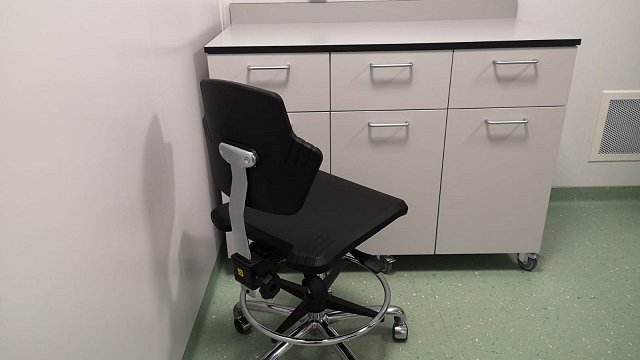“Every Latvian citizen needs to take their responsibility about their own health more seriously. This applies to lifestyle, diet, illness and especially cancer prevention,” says LTV Editor-in-chief Guntis Bojārs.
Latvia has the highest cancer death rate in the Baltics - in 2017 307.8 people per 100,000 inhabitants in Latvia died of malignant tumors. In Lithuania the figure was 286.56, in Estonia it was 295.01. Since 2010 an average of 5,950 people died every year of malignant tumors, and this statistic has yet to significantly improve.
The issue of personal responsibility when it comes to cancer prevention is highlighted by the fact that on average, 32% of cancer patients die within the first year of being diagnosed. In 2017 in 48% of cases cancer was diagnosed in stage I or II, but 18.5% are diagnosed only in stage IV (The Canadian cancer society has a helpful explanation of the stages of cancer) .
In this century there are unfortunately still cancers immune to the efforts of modern diagnostics and professional doctors. However, these cancers are rare and are not the ones responsible for the sad statistics in Latvia. The greatest cause is late detection.
Breast cancer is the most common cancer for women, but nowadays breast cancer is not the terminal illness it once was. The high-risk group, women over 50, are regularly sent invitations for a free mammogram, but only 46% take advantage of this offer.
If detected in the first or even second stage breast cancer can be overcome with surgery, leaving only a small scar. Unfortunately this is often not the case - in Latvia 500 women die of breast cancer every year, which is more than the total of traffic, drowning and fire victims combined.
There are similar problems with prostate cancer for men in Latvia. Many men would rather live with pain then go see a doctor, although there is nothing heroic about dying of cancer. Intestinal cancer affects both men and women and the government provides free screenings. Only 15% of the high-risk group take advantage of these screenings.
Latvia's First Lady and long-time practicing gynecologist Andra Levite highlights her experience with cancer, inviting people to be cautious:
"In reality, a cough that doesn't go away, an itch that doesn't disappear, irregular bleeding – these are all signs you have to be aware of."
In 2016 a "green corridor" was created in Latvia to help catch early-stage cancer. It helps people who are diagnosed with cancer for the first time to gain access to an examination or specialist within 10 days. The goal is to receive a diagnosis within a month of examination at a medical institution.
In 2017 30,700 patients in total used the "Green corridor" services. In 2018 this rose to about 46,600 patients, and in the first half of 2019 these services saw 31,600 patients. Personal responsibility is a continuous theme throughout many of the “Diagnosis - cancer” stories, but we must also become more aware and informed in society as a whole.
As previously reported, the “Diagnosis - cancer” project consists of more than 200 stories from cancer patients and their relatives. Stories were gathered this year beginning from the end of spring, and Latvian Public Media would like to thank everyone who conquered their tears and fears to share their stories. The journalistic team spent several months analyzing statistics, exploring the system in Latvia, and speaking to oncologists, as well as several NGOs to draw a variety of conclusions.































